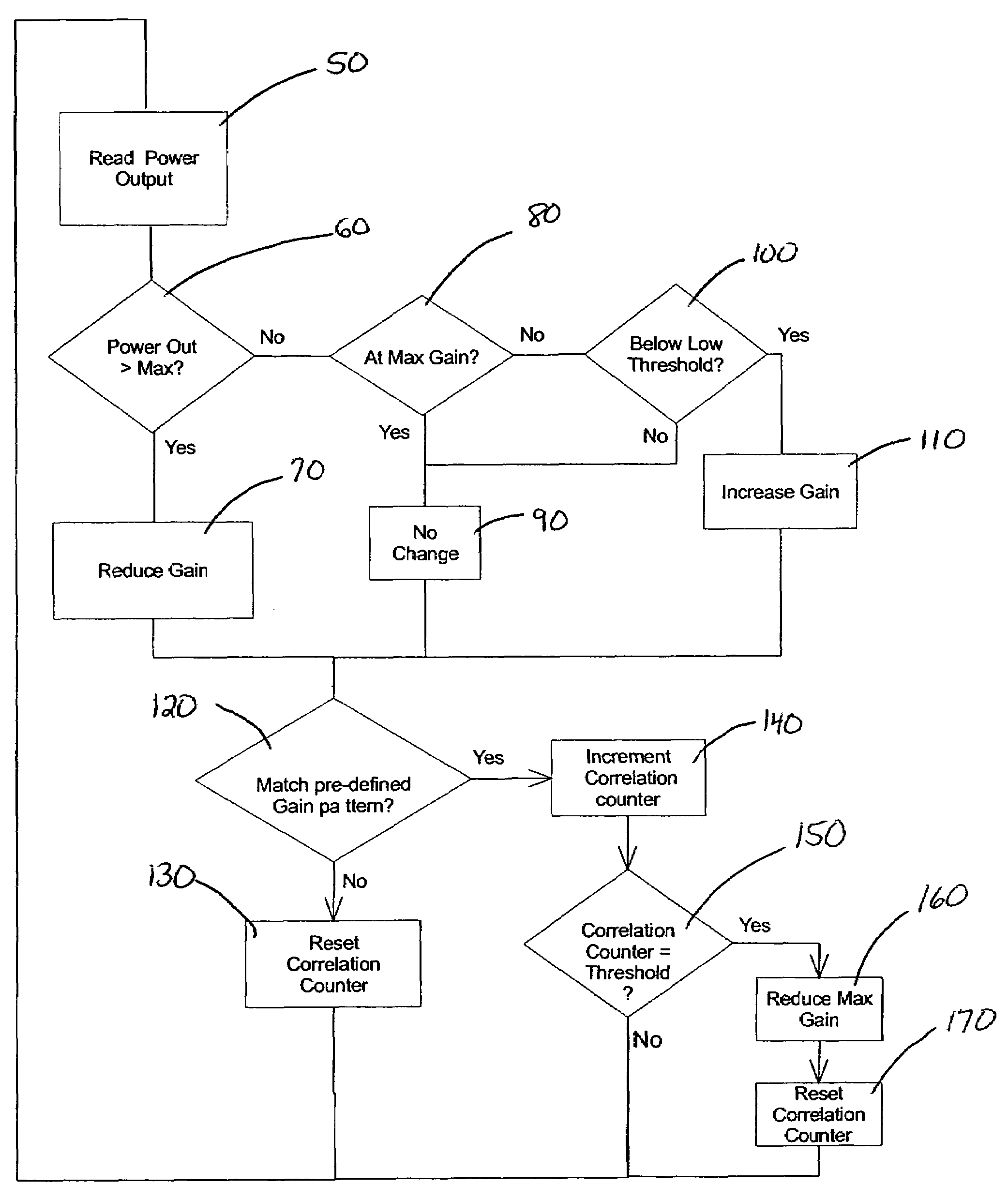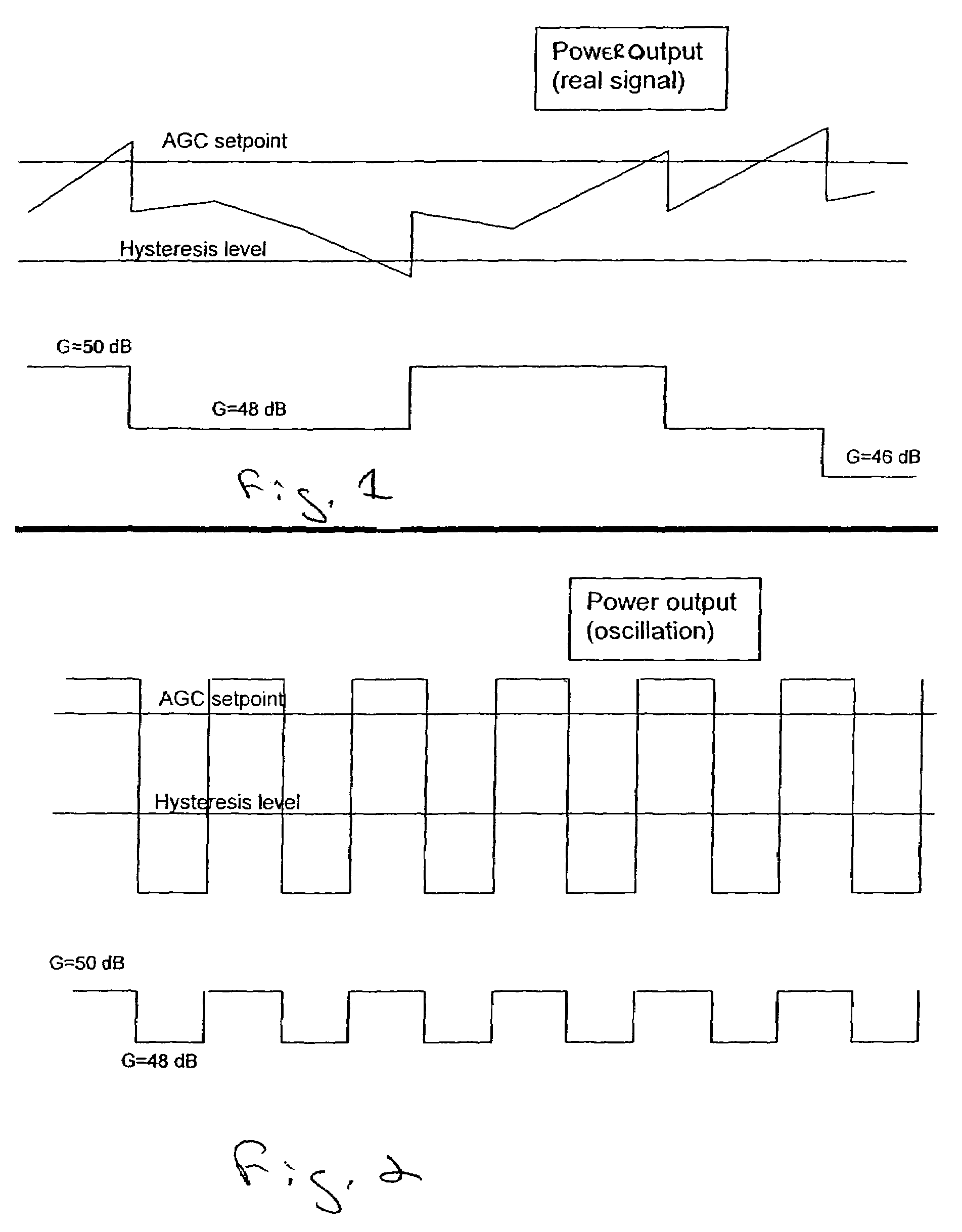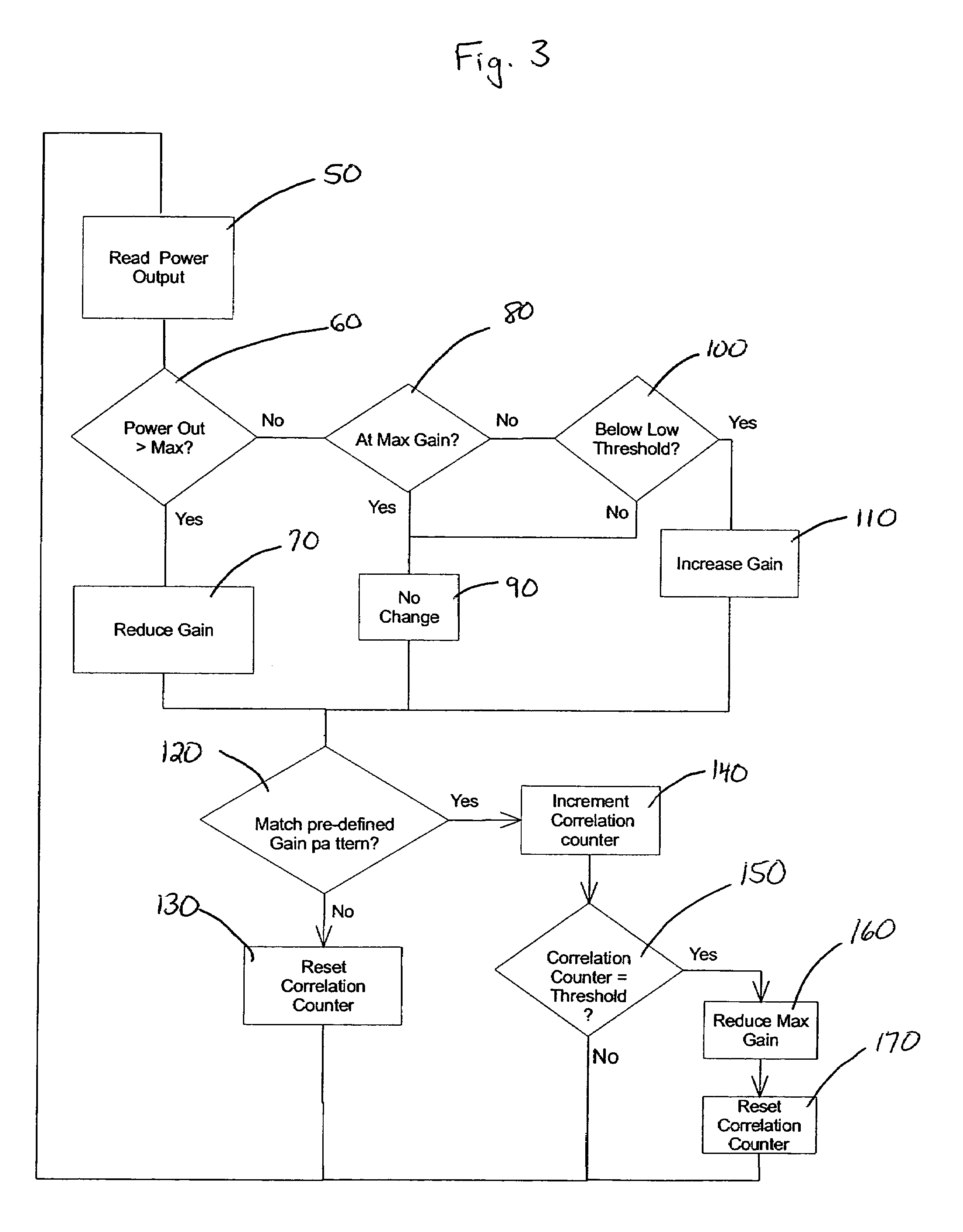Method to maintain stability in a bi-directional amplifier
a bi-directional amplifier and stability technology, applied in the direction of gain control, transmission monitoring, electrical transducers, etc., can solve the problems of amplifier oscillation, severe degradation of communication system, undesired signals, etc., and achieve the effect of maintaining stability, no cost to the product, and low cos
- Summary
- Abstract
- Description
- Claims
- Application Information
AI Technical Summary
Benefits of technology
Problems solved by technology
Method used
Image
Examples
Embodiment Construction
[0021]The present invention features a method for detecting and controlling oscillation caused by inadequate isolation between antennas used with a bi-directional amplifier. The method features an Automatic Gain Control (AGC) function for distinguishing between a strong signal caused by oscillation and a strong signal that appears in a passband of the amplifier. The enhanced Automatic Gain Control (AGC) function or feature may be incorporated into various designs. Although the present invention will be described in terms of a software algorithm, this is not a limitation of the present invention as it can also be accomplished in hardware, firmware or combinations of two or more of hardware, software and firmware.
[0022]The method features the acts of controlling the amplifier's gain (digital or analog attenuation) and accurately measuring output power of the amplifier. The act of controlling the amplifier's gain may be performed by a variable gain amplifier.
[0023]The present invention...
PUM
 Login to View More
Login to View More Abstract
Description
Claims
Application Information
 Login to View More
Login to View More - R&D
- Intellectual Property
- Life Sciences
- Materials
- Tech Scout
- Unparalleled Data Quality
- Higher Quality Content
- 60% Fewer Hallucinations
Browse by: Latest US Patents, China's latest patents, Technical Efficacy Thesaurus, Application Domain, Technology Topic, Popular Technical Reports.
© 2025 PatSnap. All rights reserved.Legal|Privacy policy|Modern Slavery Act Transparency Statement|Sitemap|About US| Contact US: help@patsnap.com



